UPCOMING EVENT: FUELING THE FEMALE ATHLETE WITH GINA ROUSE 10/29 AT 8PM

Join sports dietitian Amy Stephens and elite marathoner Gina Rouse as we discuss fueling female athletes. Topics will include: how to fuel before, and after workouts for energy, strength and recovery, building balanced meals and snacks that support performance, and helping female athletes fuel confidently through every training phase.
PAST EVENT: MARATHON PANEL 10/8 AT 2PM
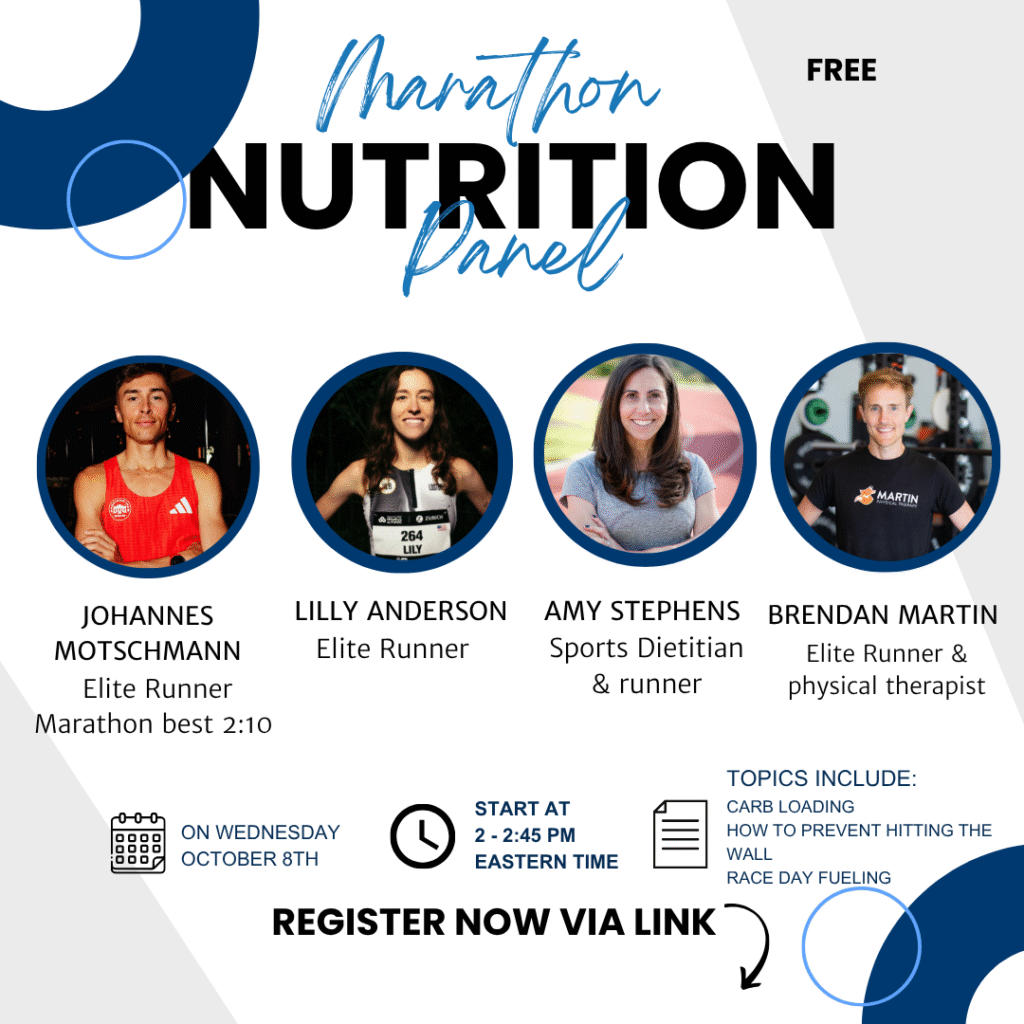
Hitting the wall is not inevitable. With the right fueling and pacing plan, energy levels can remain steady for the duration of your competition, and even provide a kick at the end.
Guide to Carb Loading for a Marathon

Plan, Prepare, and Prioritize Your Nutrition
Especially during taper week, it’s crucial to stay organized and mindful of your diet, particularly if you’re balancing a busy schedule. Even though we’re running less in the taper, nutrition is just as important as our bodies absorb all the training we’ve put in during our training cycle.
How to avoid hitting the wall during a marathon

Hitting the wall is not inevitable. With the right fueling and pacing plan, energy levels can remain steady for the duration of your competition, and even provide a kick at the end.
MACRONUTRIENT TRACKING: HELPFUL OR HARMFUL
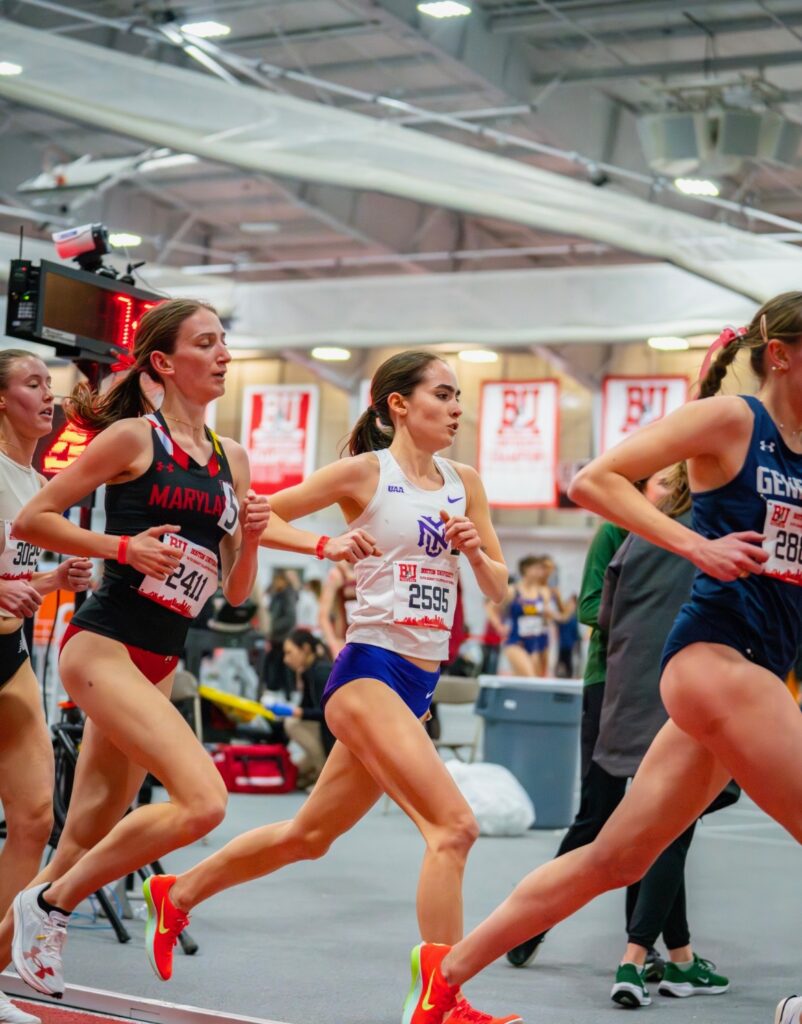
By Kate, Cochran, NCAA Division III track and field athlete.
I often get asked my opinion on “tracking macros” and whether or not I do it as an athlete. While I think tracking your macronutrients as an athlete can be a good tool to ensure you’re eating enough to improve performance, I personally do not do it.
Sample presentation for high school athletes

These slides are examples from a presentation designed for high school athletes, highlighting key topics such as a performance plate, nutrient timing and hydration. They provide a preview of the type of content that can be shared in a team or classroom setting, offering practical, age-appropriate guidance that athletes can easily apply to their training, competition, and daily routines.
Fuel up: Power-Packed Meal Ideas for Athletes

My favorite meals for athletes! Refuel your energy with this list below.
How to know when your fueling plan is working
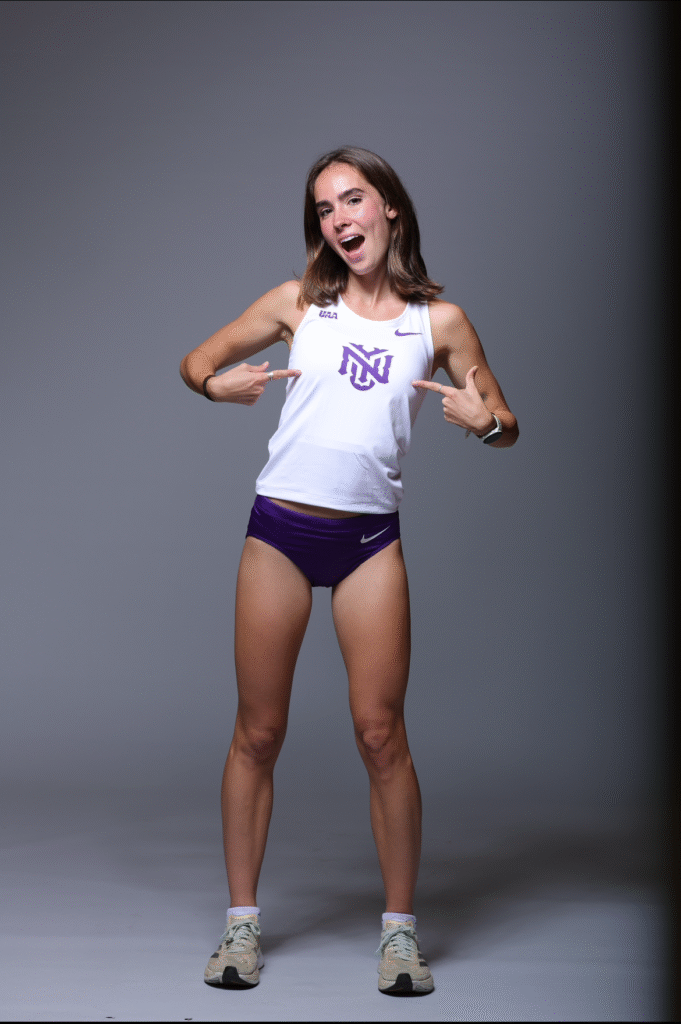
Written by Kate Cochran, Nutrition Intern
Fueling properly for your sport can feel both straightforward and surprisingly complex. For endurance runners, a solid baseline is three balanced meals focused on carbs for energy, protein for recovery, and fats for satiety, with snacks in between.
7 Nutrition Myths Every Athlete Should Stop Believing
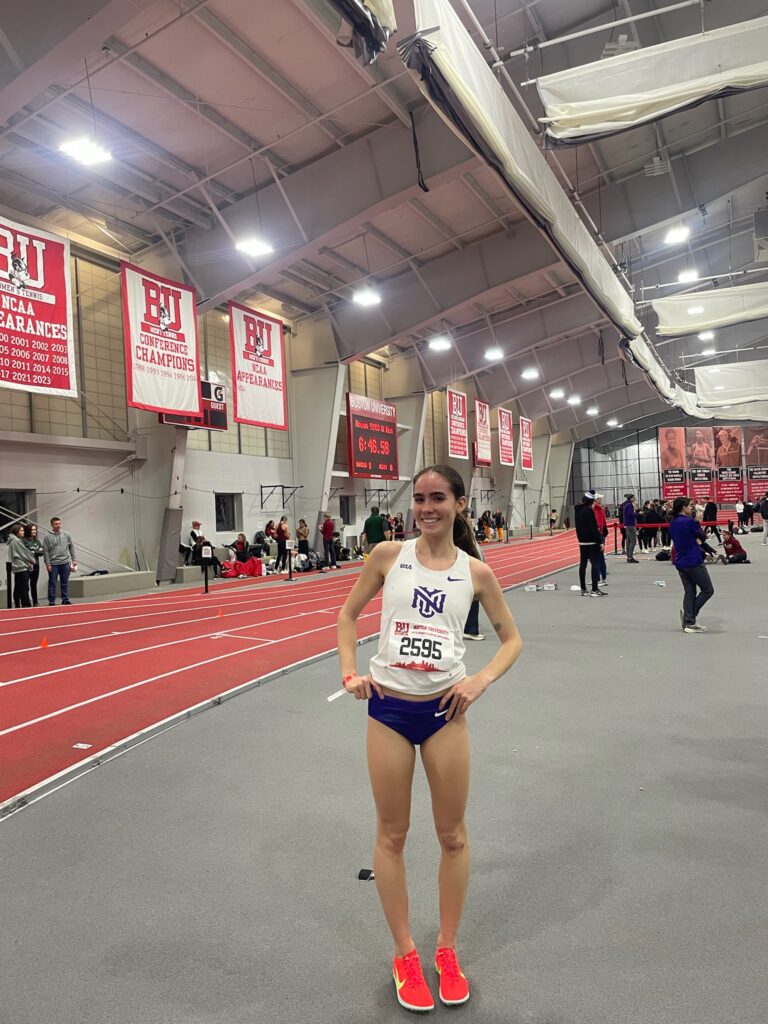
By Kate Cochran, NYU Cross Country Athlete. As an athlete, I often come across all kinds of advice—on how to eat, train, and recover—and it can be hard to know what really works. With social media playing such a big role in how we share and learn information, especially from influencers and fitness personalities, it’s easy to get overwhelmed by the sheer amount of content out there.
Lost Your Period? Here’s How Low Estrogen Could Be Impacting Your Performance
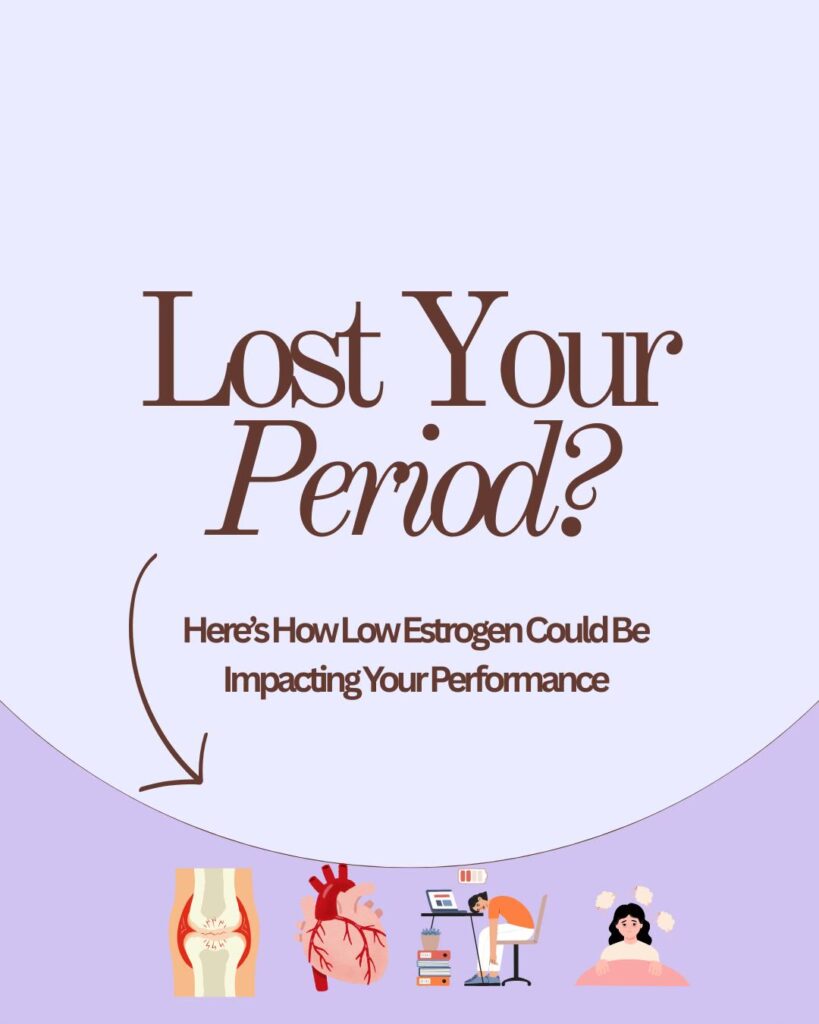
If you’re a female athlete, getting your period is really important. There are many ways that you can use your cycle to your advantage in your sport and in life. When I started running in high school, there was this widespread belief—one that I hope is starting to fade—that losing your period was a sign of being in “peak fitness.”